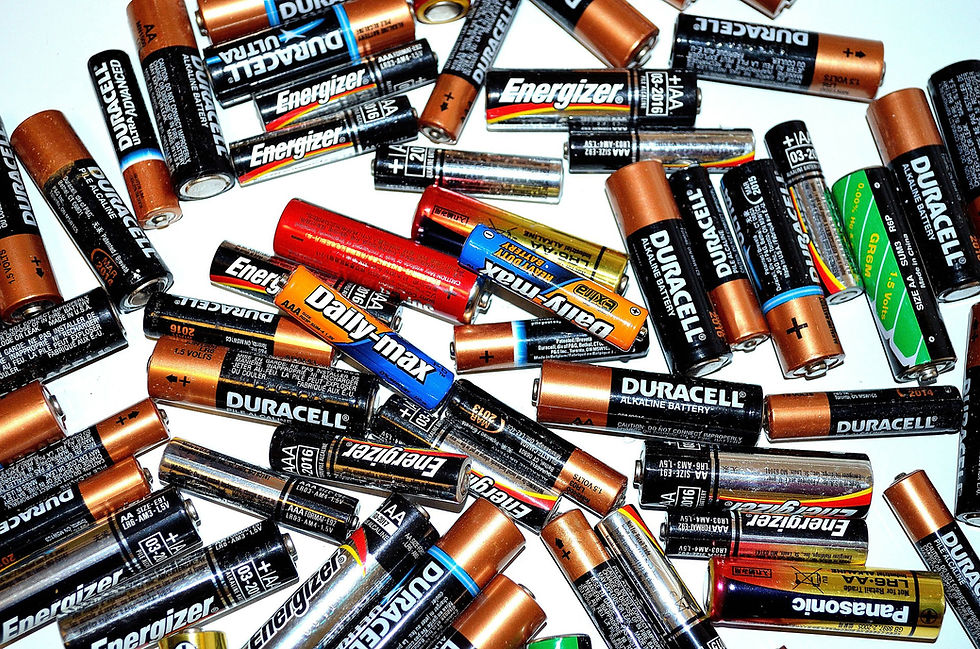Pungent produce packs an electrical punch
..

A University of Sydney researcher has developed a new method using the world's most repulsive smelling fruit. Turning durian waste into super-capacitors could "substantially reduce" the cost of energy storage and charge devices very quickly.
Imagine if we could use naturally-grown products, like plants and fruit, to store the electricity that charges commonly used electronics, like mobile phones, tablets, laptops or even electric cars?
Researchers from the University of Sydney have done just that and have developed a method that uses durian and jackfruit waste to create energy stores for rapid electricity charging.
School of Chemical and Biomolecular Engineering academic Associate Professor Vincent Gomes explains how he and the research team managed to turn the tropical fruits into super-capacitors.
How does it work?
“Using durian and jackfruit purchased from a market, we converted the fruits’ waste portions (biomass) into super-capacitors that can be used to store electricity efficiently,” said Associate Professor Gomes.
“Using a non-toxic and non-hazardous green engineering method that used heating in water and freeze-drying of the fruits’ biomass, the durian and jackfruit were transformed into stable carbon aerogels — an extremely light and porous synthetic material used for a range of applications.
“Carbon aerogels make great super-capacitors because they are highly porous. We then used the fruit-derived aerogels to make electrodes which we tested for their energy storage properties, which we found to be exceptional.”

What are super-capacitors?
“Super-capacitors are like energy reservoirs that dole out energy smoothly. They can quickly store large amounts of energy within a small battery-sized device and then supply energy to charge electronic devices, such as mobile phones, tablets and laptops, within a few seconds," said Associate Professor Gomes.
“Compared to batteries, super-capacitors are not only able to charge devices very quickly but also in orders of magnitude greater charging cycles than conventional devices.
"The current super-capacitors are made from activated carbon which is nowhere near as efficient as the ones prepared during this project."

Why durian and jack fruit?
“Durian waste was selected based on the excellent template nature provides for making porous aerogels,” said Associate Professor Gomes.
“The durian and jack-fruit super-capacitors perform much better than the materials currently in use and are comparable, if not better, than the expensive and exotic graphene-based materials.
“Durian waste, as a zero-cost substance that the community wants to get rid of urgently due to its repulsive, nauseous smell, is a sustainable source that can transform the waste into a product to substantially reduce the cost of energy storage through our chemical-free, green synthesis protocol.”
What could this technology be used for?
“We have reached a point where we must urgently discover and produce ways to create and store energy using sustainably-sourced materials that do not contribute to global warming,” said Associate Professor Gomes.
“Confronted with this and the world’s rapidly depleting supplies of fossil fuels, naturally-derived super-capacitors are leading the way for developing high-efficiency energy storage devices."
DISCLOSURE
The study, Aerogel from fruit biowaste, produces ultracapacitors with high energy density and stability. It was conducted by Associate Professor Vincent Gomes, Kenny Lee, Dr Luba Shabnam, Dr Shaikh Nayeem Faisal and Dr Van Chinh Hoang.
The authors gratefully acknowledge a scholarship from the Research Training Program (LS) and the support from ACMM for SEM, TEM and XRD measurements at The University of Sydney.
There are no conflicts of interest to disclose.
Source: The University of Sydney
(All the credits go to the Source)







Comentários